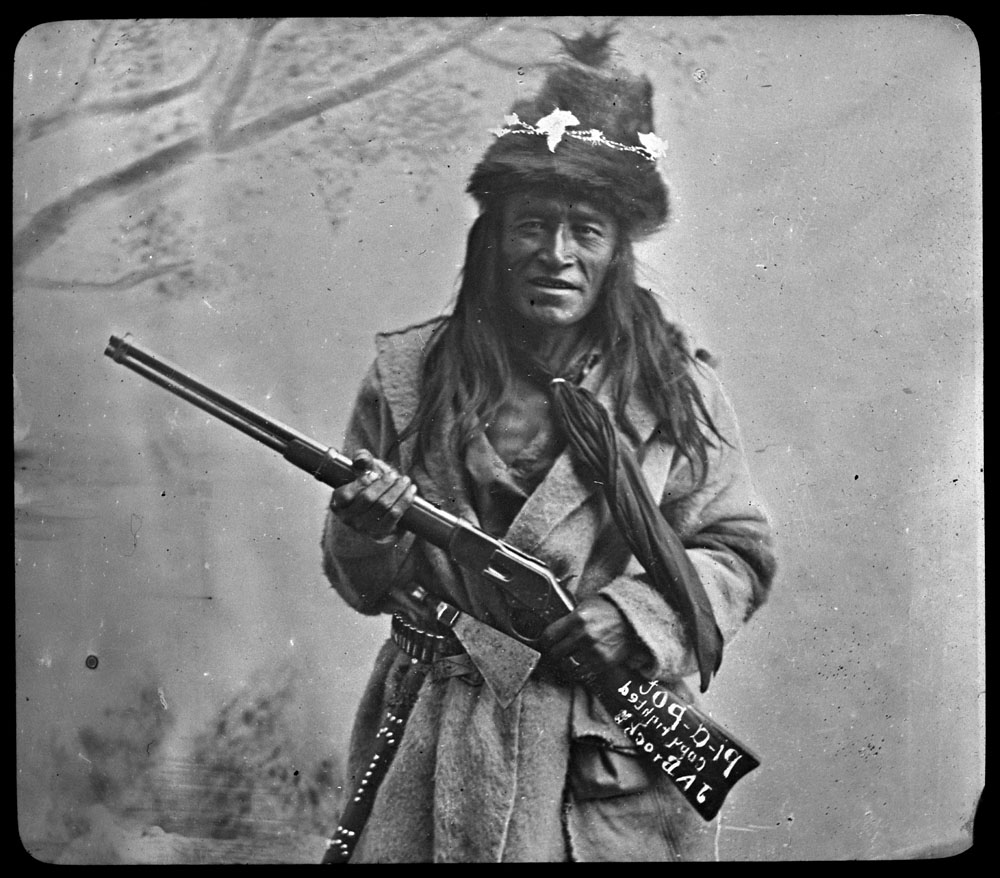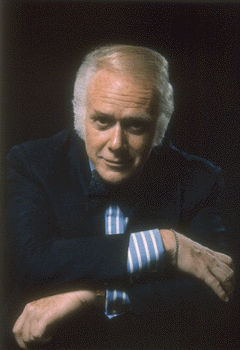Browse "People"
-
Article
Piano Six
Piano Six was an association of six pianists that brought low-cost, high-calibre live-concert music performances to small-town and rural Canada, exposing school children and music students to live piano music. Founded in 1994 by pianist Janina Fialkowska — with original members Angela Cheng, Marc-André Hamelin, Angela Hewitt, André Laplante and Jon Kimura Parker — and continued from 2004 to 2010 as Piano Plus, the program reached more than 100,000 Canadians in over 200 communities. The touring program was relaunched in 2017 as Piano Six: New Generation, featuring pianists Daniel Wnukowski, Marika Bournaki, David Jalbert, Angela Park, Ian Parker and Anastasia Rizikov.
"https://development.thecanadianencyclopedia.ca/images/tce_placeholder.jpg?v=e9dca980c9bdb3aa11e832e7ea94f5d9" // resources/views/front/categories/view.blade.php
https://development.thecanadianencyclopedia.ca/images/tce_placeholder.jpg?v=e9dca980c9bdb3aa11e832e7ea94f5d9
-
Article
Piapot
Piapot (also spelled Payipwat, meaning “One Who Knows the Secrets of the Sioux,” originally named Kisikawasan, meaning “Flash in the Sky”), Cree chief (born in 1816 on the southern prairies; died in 1908 on the Piapot Reserve, SK). During Piapot’s 92 years, he witnessed great changes on the Canadian prairies, including the disappearance of the bison and the settlement of non-Indigenous peoples on Indigenous lands. As chief, Piapot resisted assimilation and strove to uphold Cree customs and traditions.
"https://d2ttikhf7xbzbs.cloudfront.net/media/media/a066547-v8.jpg" // resources/views/front/categories/view.blade.php
https://d2ttikhf7xbzbs.cloudfront.net/media/media/a066547-v8.jpg
-
Article
Pier Giorgio Di Cicco
Pier Giorgio Di Cicco, poet (b at Arezzo, Italy, 5 July 1949). Di Cicco's poetry often reflects the dislocations of his family's life. His hometown of Arezzo was ravaged by World War II and his older brother died from a bomb blast in 1944.
"https://development.thecanadianencyclopedia.ca/images/tce_placeholder.jpg?v=e9dca980c9bdb3aa11e832e7ea94f5d9" // resources/views/front/categories/view.blade.php
https://development.thecanadianencyclopedia.ca/images/tce_placeholder.jpg?v=e9dca980c9bdb3aa11e832e7ea94f5d9
-
Article
Pierick Houdy
Pierick Houdy, composer, organist, pianist, choirmaster, teacher (born 18 January 1929 in Rennes, France; died on 22 March 2021, in Le Palais, France). Prolific composer, he wrote hundreds of pieces over the course of his career, including his Sonate for harp, which is played across the world and frequently used in international competitions. He was awarded the Second grand prix de Rome in 1953; the Grand prix musical de la ville de Paris in 1954; the Prix Emmanuel Chabrier in 1954; the Premier prix de composition at the Paris Conservatory in 1954; as well as the Canadian Music Council’s Best Canadian choral recording award for his Messe québécoise (1973) in 1979.
"https://development.thecanadianencyclopedia.ca/images/tce_placeholder.jpg?v=e9dca980c9bdb3aa11e832e7ea94f5d9" // resources/views/front/categories/view.blade.php
https://development.thecanadianencyclopedia.ca/images/tce_placeholder.jpg?v=e9dca980c9bdb3aa11e832e7ea94f5d9
-
Article
Pierre Ayot
Pierre Ayot, engraver and multidisciplinary artist (b at Montréal 26 Jun 1943; d at Saint-Jean-de-Matha, Qc 2 May 1995). He studied engraving with Albert Dumouchel at Montréal's École des Beaux-arts, where he began teaching in 1963.
"https://development.thecanadianencyclopedia.ca/images/tce_placeholder.jpg?v=e9dca980c9bdb3aa11e832e7ea94f5d9" // resources/views/front/categories/view.blade.php
https://development.thecanadianencyclopedia.ca/images/tce_placeholder.jpg?v=e9dca980c9bdb3aa11e832e7ea94f5d9
-
Article
Pierre Beaudet
Pierre (Hugues) Beaudet. Pianist, producer, b Thetford-Mines, Que, south of Quebec City, 20 Jan 1924. Brother of Jean-Marie Beaudet. He first studied piano with Léo-Pol Morin in Montreal. At the CMM 1943-6 his teachers were Germaine Malépart (piano) and Gabriel Cusson (ear training).
"https://development.thecanadianencyclopedia.ca/images/tce_placeholder.jpg?v=e9dca980c9bdb3aa11e832e7ea94f5d9" // resources/views/front/categories/view.blade.php
https://development.thecanadianencyclopedia.ca/images/tce_placeholder.jpg?v=e9dca980c9bdb3aa11e832e7ea94f5d9
-
Article
Pierre Béluse
Pierre Béluse. Percussionist, teacher, b Lachine, near Montreal, 21 Jul 1935. He played 1953-65 in several Montreal nightclubs and studied 1957-9 at the CMM with Saul Goodman and Louis Charbonneau.
"https://development.thecanadianencyclopedia.ca/images/tce_placeholder.jpg?v=e9dca980c9bdb3aa11e832e7ea94f5d9" // resources/views/front/categories/view.blade.php
https://development.thecanadianencyclopedia.ca/images/tce_placeholder.jpg?v=e9dca980c9bdb3aa11e832e7ea94f5d9
-
Article
Pierre Bernier
Pierre Bernier. Cellist, teacher, b Quebec City 19 Aug 1933. He studied 1948-54 at the CMQ with Walter Joachim, Lucien Plamondon, and Paul Létourneau. He served 1956-66 as a cellist with the Quebec Symphony Orchestra and the CBC Quebec Chamber Orchestra.
"https://development.thecanadianencyclopedia.ca/images/tce_placeholder.jpg?v=e9dca980c9bdb3aa11e832e7ea94f5d9" // resources/views/front/categories/view.blade.php
https://development.thecanadianencyclopedia.ca/images/tce_placeholder.jpg?v=e9dca980c9bdb3aa11e832e7ea94f5d9
-
Article
Pierre Berton
Pierre Berton, journalist, historian, media personality (b at Whitehorse, YT 12 July 1920; d at Toronto, Ont 30 Nov 2004). Berton was among Canada's best-known writers and was particularly well regarded as a serious popularizer of Canadian history.
"https://d2ttikhf7xbzbs.cloudfront.net/media/media/7a04eec4-6c8c-4ad1-b5f8-e6c380c4f901.jpg" // resources/views/front/categories/view.blade.php
https://d2ttikhf7xbzbs.cloudfront.net/media/media/7a04eec4-6c8c-4ad1-b5f8-e6c380c4f901.jpg
-
Article
Pierre Berton on the Klondike Gold Rush
Klondike Gold Rush, touched off by the 16 August 1896 discovery of placer gold (the claim was staked on August 17) on Rabbit (later Bonanza) Creek.
"https://d2ttikhf7xbzbs.cloudfront.net/media/media/ba4e7fbd-700f-4a42-9cf1-423ce14c6280.jpg" // resources/views/front/categories/view.blade.php
https://d2ttikhf7xbzbs.cloudfront.net/media/media/ba4e7fbd-700f-4a42-9cf1-423ce14c6280.jpg
-
Article
Pierre Bertrand
Pierre Bertrand, author and philosopher (b at Montréal, 1946). Pierre Bertrand, earned a PhD (Philosophy) from the Université de Paris VIII et Paris I. He had a career teaching philosophy at the CÉGEP Édouard-Montpetit in Longueuil on Montréal's south shore, and was a prolific and productive writer.
"https://development.thecanadianencyclopedia.ca/images/tce_placeholder.jpg?v=e9dca980c9bdb3aa11e832e7ea94f5d9" // resources/views/front/categories/view.blade.php
https://development.thecanadianencyclopedia.ca/images/tce_placeholder.jpg?v=e9dca980c9bdb3aa11e832e7ea94f5d9
-
Article
Pierre Bertrand
Pierre Bertrand. Singer, songwriter, guitarist, b Montreal 11 Aug 1938. From 1973 to 1977 he composed, sang, and played bass guitar as a member of the group Beau Dommage, composing several hits ('Tous les palmiers,' 'Le Picbois,' 'Rouler la nuit,') and making records.
"https://development.thecanadianencyclopedia.ca/images/tce_placeholder.jpg?v=e9dca980c9bdb3aa11e832e7ea94f5d9" // resources/views/front/categories/view.blade.php
https://development.thecanadianencyclopedia.ca/images/tce_placeholder.jpg?v=e9dca980c9bdb3aa11e832e7ea94f5d9
-
Article
Pierre Biard
Pierre Biard, Jesuit missionary (b at Grenoble, France 1567 or 1568; d at Avignon, France 17 Nov 1622). After long preparation for missionary work, Biard left for ACADIA in early 1611.
"https://development.thecanadianencyclopedia.ca/images/tce_placeholder.jpg?v=e9dca980c9bdb3aa11e832e7ea94f5d9" // resources/views/front/categories/view.blade.php
https://development.thecanadianencyclopedia.ca/images/tce_placeholder.jpg?v=e9dca980c9bdb3aa11e832e7ea94f5d9
-
Article
Pierre Billon
Pierre Billon, novelist (b at Geneva, Switzerland Jun 15 1937). Following studies in education at the Université de Montréal (1965), Pierre Billon taught at the Faculty of Arts there, and at the University of Ottawa. Then he was head of educational publications at Éditions Fides.
"https://development.thecanadianencyclopedia.ca/images/tce_placeholder.jpg?v=e9dca980c9bdb3aa11e832e7ea94f5d9" // resources/views/front/categories/view.blade.php
https://development.thecanadianencyclopedia.ca/images/tce_placeholder.jpg?v=e9dca980c9bdb3aa11e832e7ea94f5d9
-
Article
Pierre Boogaerts
Aside from exhibiting his work internationally, Boogaerts has written several essays on photography and visual perception.
"https://d2ttikhf7xbzbs.cloudfront.net/media/media/a6b9e21f-2613-4746-b099-044f83cdfda6.jpg" // resources/views/front/categories/view.blade.php
https://d2ttikhf7xbzbs.cloudfront.net/media/media/a6b9e21f-2613-4746-b099-044f83cdfda6.jpg
